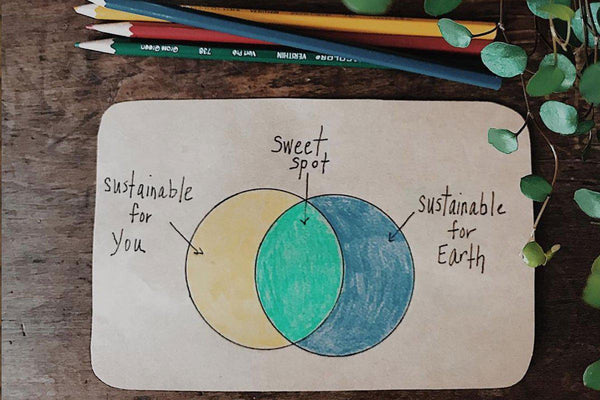
DIY | Conscious Crafts

Here’s a tried-and-true recipe that allows you to make and dye play dough from ingredients found in the kitchen, backyard, or garden. The goal is to keep the process simple and sustainable, so instead of going out and buying new or expensive ingredients, I suggest using what you have. Maybe you have spices and powders collecting dust in your cabinets – if so, put them to use!

Directions
1. To make plant-based liquid dyes, add 1 ¼ cup water to a medium-sized pot along with the amount of plant powder or parts listed above. For example, to make pink dye, combine 1 ¼ cup of water and ½ cup of shredded beets in a medium-sized pot. To make green dye, combine 1 ¼ cup of water and 1 tbsp of Spirulina powder in a medium-sized pot. And so on.
2. Bring the plants and water mixture to a boil, reduce temperature to a simmer, and cook on low heat for a few minutes. Remove from heat and allow to cool for 30 minutes.
3. Strain the plant parts and powder, reserving the liquid dyes for the play dough recipe.
4. To make play dough, mix the flour, salt, and cream of tartar in a medium-sized pot.
5. Add the oil and water/plant-based liquid dye and mix well until ingredients are well-combined.
6. Place pot on stove over medium heat and cook the dough. Stir often until the dough begins to pull away from the edges of the pot.
7. Remove pot from heat and allow the dough to cool for a few minutes, then remove the dough from the pot, place it on a wooden cutting board, and knead it until it’s smooth and uniform in texture.
8. Set out for moulding and sculpting, then store dough in an airtight container for up to one month.

Directions
1. When mixing your paint colors, start with pigments that come from the dry, powdered form of a veggie, spice, or flower. Most, if not all, of the pigments I suggested above come in powdered form either from the spice or natural wellness section of the grocery store or online. If you’re super hands-on and have the time, you can make your pigments and powders from scratch by dehydrating plants in your dehydrator or in the oven on a low temperature setting (160 degrees F), then blitzing them in a high-speed food processor until they become fine powder. I’ve done this with beets, spinach, and carrots and, while it takes some time, the process is fun and rewarding and you can often use the pigments for other arts and personal projects, for example I’ve used the beet powder to make blush & tinted lip balm.
2. To make each paint colour, add 1 tbsp of the powdered pigment + ½ tbsp of clay + enough water to make a thick, creamy paste.
3. Mix well, dip your paint brush in colours, and paint!

 Welcome to Olli Ella!
Welcome to Olli Ella!






